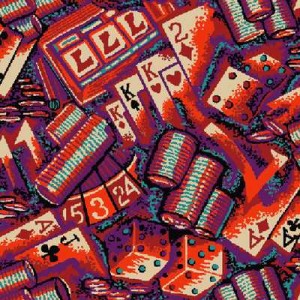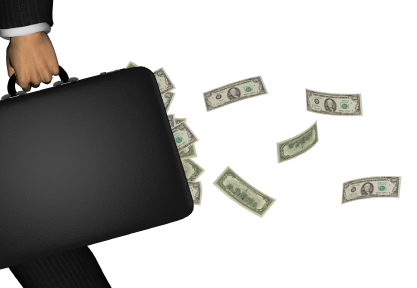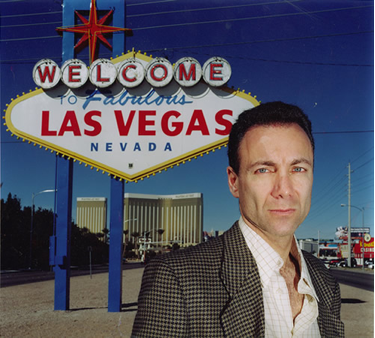 Even though money is tight for a lot of corporations, Vegas rocks on, making millions and millions of dollars every year. What exactly are they doing differently? How can they make so much money while the majority of companies today struggle just to make a buck? What does Vegas know that you and I don’t?
Even though money is tight for a lot of corporations, Vegas rocks on, making millions and millions of dollars every year. What exactly are they doing differently? How can they make so much money while the majority of companies today struggle just to make a buck? What does Vegas know that you and I don’t?
Yeah, they have bright lights, beautiful girls, lots of glitz… but come on, it’s a dessert. It’s hot and dry, and people lose money there. And yet, they can’t wait to come back again and again.
What’s the secret? Las Vegas practices some very clever marketing techniques, and they work. Casinos are in the entertainment business, and like most entertainment venues, we are expected to pay for the fun. But the price of Six Flags or going to the movies has a fixed price, for the most part, while casinos do not. You control what you spend. Truth be told, most people will lose when they visit the casino. This is the price they pay for the chance to win. But what you need to know is that the casinos primary business is separating you from your money and all the while making you think you’re having a great time. If you want to see other ways Vegas casino take your money, read this article on Vegas Ripoffs.
Lots of people get “lost” in all this fun and excitement. The atmosphere is exhilarating. It’s like a party, and everybody loves a party! If you are walking by when someone wins, it gives you the feeling that you too can win. You can really get caught up in it when you’re young and naïve, so try to keep these next things in mind when you’re having the time of your life in Sin City!
Crazy Carpets
Dr. David Schwarts from the Center of Gamin Research in Nevada said, “Casino carpet is known as an exercise in deliberate bad taste that somehow encourages people to gamble.” The theory behind ugly carpeting is to make it so hard on your eyes that you have to look up. Also the colors and patterns are designed stimulate you. Yeah, they are tacky, but also mesmerizing. (I always thought it was to hide the puke stains.)
A high roller is a gambler known to place extravagant bets, and there’s always a lot of curiosity about who the high rollers are and what casinos they are playing in. They move in different circles than the rest of us.
In Vegas, a high roller is also called a “Whale,” and the whales are prized commodities to gambling establishments. Casinos fly them in on private jets, put them up in the most luxurious penthouses, and provide them with personal chefs and doting butlers—as long as these deep-pocket players are willing to put six figures at risk each time they visit.
These big boys (and sometimes girls) will bet on the order of $1 million on a visit. It is estimated that there are less than 500 of them, and they may place bets of around $100K on a single hand. Their personal wealth starts at $1 billion, and they can muster credit lines of around $20 to $25 million.
Since this elite group of players comprise only a small portion of casino players, they must be lured to the casinos with all the best comps. Their massive multi-million dollar bankrolls and credit lines can easily amount to the losses of 100′s if not 1,000′s of regular patrons. While high rollers may not provide a significant portion of the revenues in the casino industry as a whole, they can have a major effect on the net income of casinos that cater to them.
Since there are significant costs associated with attracting the highest stakes gamblers, if a casino takes this chance and the whale wins, its expenses can be extraordinarily large. But if the casino’s investment pays off and the high roller losses, the casino’s gain can far exceed its expenses for the visit.
Some of the Better Known Las Vegas Whales:
 Tiger Woods – Last year reports began surfacing that disgraced golf champion Tiger Woods was into more than just “other women.” He also like to gamble—a lot. Tiger became a regular at the Mansion, a club for high rollers at the MGM Grand Casino, where he was given a $1 million betting limit and routinely played blackjack at $25,000 a hand. His table always had to be filled with hot party girls, and he enjoyed being catered to.
Tiger Woods – Last year reports began surfacing that disgraced golf champion Tiger Woods was into more than just “other women.” He also like to gamble—a lot. Tiger became a regular at the Mansion, a club for high rollers at the MGM Grand Casino, where he was given a $1 million betting limit and routinely played blackjack at $25,000 a hand. His table always had to be filled with hot party girls, and he enjoyed being catered to.
 So you’re going to Vegas… let’s just say you’re a Vegas Veteran (that’s anybody who has been there at least once). You have a feel for the place, and this time you want to gamble a little smarter. You’re not going to fall for the bright lights and free drinks this time. You’ll have more money to gamble with if you pay more attention to all the nickel and diming going on around you. Believe me, it adds up.
So you’re going to Vegas… let’s just say you’re a Vegas Veteran (that’s anybody who has been there at least once). You have a feel for the place, and this time you want to gamble a little smarter. You’re not going to fall for the bright lights and free drinks this time. You’ll have more money to gamble with if you pay more attention to all the nickel and diming going on around you. Believe me, it adds up.
CASINOS ARE HOPING YOU’RE NOT PAYING ATTENTION TO THIS
PAYBACK—Casinos often advertise that their slot machines pay out a very high percentage of the money they take in, 95% payback being a common claim. These numbers can be misleading. Advertising 95% doesn’t mean that all the casino slot machines are paying out at that level all the time. It’s true that each slot is programmed to return a percentage of the money players feed into it—anywhere from 83 to 99% over a long period of time, says Jeffery Compton, a gaming analyst at Compton Dancer Consulting—but not all pay out the same percentage. So at any given point, some machines pay out nothing while others pay out much of their intake. To arrive at the 95% figure, casino management simply limits the scope of its claim to a subset of slots machines that will deliver a 95% payout. So don’t be fooled by the casino’s marketing efforts. If you feed $100 into a slot machine on any given day, there is no guarantee that you will get $95 back on that day or ever for that matter.
 For the diehard poker fan, playing poker is just not enough. You can learn a few tricks from television shows like the World Series of Poker (WSOP) on ESPN, World Poker Tour (ETP), High Stakes Poker and Poker After Dark. Any time you are watching people play hands of poker, there is something of value to learn, even if it is an amateur up against a poker professional. In a game where successful players are those who can figure out the thought processes of their opponents, poker on TV can be a virtual school which reveals the players’ mindset and leaves you to answer the question, “Why did they play a hand the way they did?” Here’s a run-down of televised poker shows to watch.
For the diehard poker fan, playing poker is just not enough. You can learn a few tricks from television shows like the World Series of Poker (WSOP) on ESPN, World Poker Tour (ETP), High Stakes Poker and Poker After Dark. Any time you are watching people play hands of poker, there is something of value to learn, even if it is an amateur up against a poker professional. In a game where successful players are those who can figure out the thought processes of their opponents, poker on TV can be a virtual school which reveals the players’ mindset and leaves you to answer the question, “Why did they play a hand the way they did?” Here’s a run-down of televised poker shows to watch.
WORLD SERIES OF POKER
THE 2010 WSOP announced its 2010 schedule of 57 bracelet events to take place in 2010. This series will begin on May 27 and running until July 17. Poker players from around the world will travel to the Rio All Suites Hotel and Casino to participate in the largest tournament series of the year in search of the most coveted piece of jewelry in poker: the WSOP bracelet.
For 51 days the Pavilion Ballroom, along with the Amazon room, will be packed with players hoping to increase their bankrolls and bragging rights, as well as their Player of the Year standings. With the addition of the Pavilion Ballroom, there will be up to 20% more tables in action as WSOP officials hope to ease the capacity concerns from last year.
 Richard Marcus, by his own admission, was a born gambler. Even as a small boy growing up in New York, he reminisces about betting baseball cards on what color car was going to come around the corner. He recalls, “I woke up gambling and went to sleep gambling.”
Richard Marcus, by his own admission, was a born gambler. Even as a small boy growing up in New York, he reminisces about betting baseball cards on what color car was going to come around the corner. He recalls, “I woke up gambling and went to sleep gambling.”
FIRST TRIP TO VEGAS
He was barely old enough to gamble when he arrived in Las Vegas in 1976, but for a natural born gambler this was home. After saving up between $20,000 and $30,000 from betting trifectas at the racetrack, he was ready to flip that cash in Vegas. Baccarat was one of his favorite games, and he turned that first investment into about $100,000, and in a couple nights, it was gone. He was thrown out of his luxury hotel room and found himself on the streets, homeless. Marcus did not give up, though. He cleaned himself up and got a job.
The only experience he had was at the tables, so he enrolled in dealer school, worked the graveyard shift at a casino, and honed his skills. Marcus got a job dealing baccarat and blackjack at the 4 Queens Casino and from this unique vantage point, he began to see how dealers could be exploited for his own personal gain.
MARCUS FINDS A MENTOR
In 1977, while dealing at Caesars Palace, Marcus was approached by Joe Classon. Classon was a class act and also from New York, and they soon were fast friends. Marcus recalls that he automatically trusted Classon upon first meeting him. Classon said he’d been watching Marcus and noticed that he never cheated or stole from the players or the casino. Where many dealers would pocket chips here and there, Marcus didn’t. Marcus replied that maybe he was just waiting for the right moment, as he didn’t have an answer to Classon’s question.




1 Comment - Click Here to Speak Up